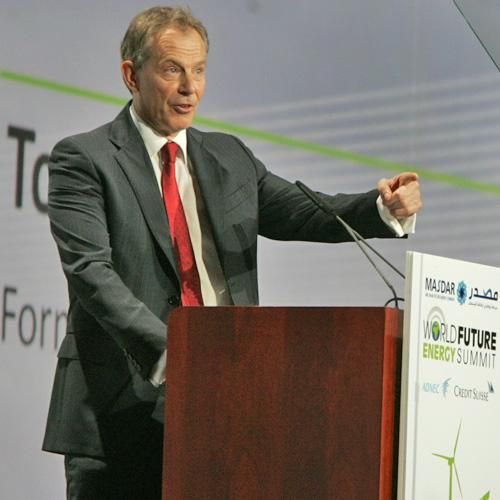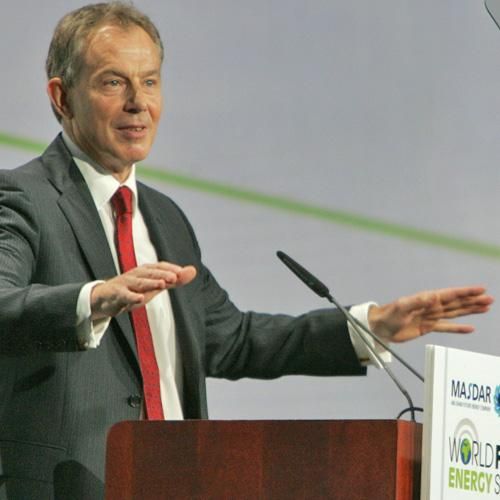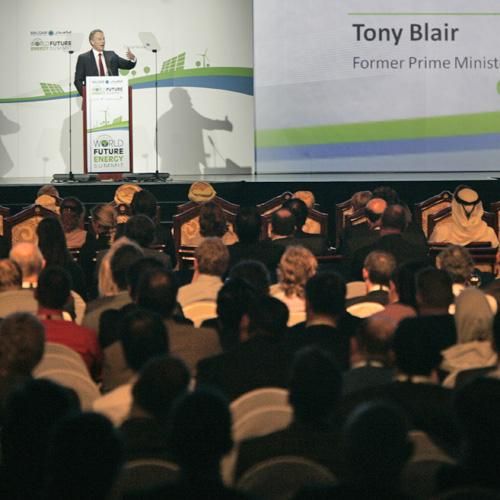Oil-rich UAE is leading the fight against climate change even though “there is no reason of immediate or narrow self-interest to do so,'' former UK Prime Minister Tony Blair said yesterday.
“Here, in one of the carbon centres of the world, this country is leading. Against everything you might expect, against intuition, the Emirates have decided to become a centre of alternative energy … showing others the way to the future,'' Blair told delegates at the World Future Energy Summit 2009 in Abu Dhabi.
The Gulf country holds an estimated 10 per cent of the world's proven oil reserves, and has perhaps the biggest carbon footprint relative to its small population.
On average, each one its six million residents produce 80 tonnes of carbon dioxide per year, Prof. Geoffrey Boulton, a British geologist with the Intergovernmental Panel on Climate Change, had earlier told XPRESS.
By comparison, the carbon impact of the US – the world's biggest polluter – is only 20 tonnes per person, per year, according to figures cited by Blair.
Carbon dioxide is a natural gas also produced as a waste product by driving cars, heavy industrial operations and most of the planet's power generation.
It is widely believed to be the main culprit in climate change, a theory about the heating up of the Earth, allegedly caused by human activity.
A warmer globe will make many plant and marine species extinct, destroy agriculture, and raise sea levels enough to wipe out entire cities, some scientists claim.
“That is why it is so extraordinary and inspiring that this conference takes place in Abu Dhabi. Those who know the history of this nation know that Shaikh Zayed was a conservationist and environmentalist long before it was fashionable.''
The UAE capital has started building what it says will be the world's first “zero-carbon, zero-waste'' city. No gasoline or diesel-powered cars, for example, will be allowed in Masdar City, expected to be ready in seven years at a cost of over Dh73-billion ($20-billion).
“Today, Masdar continues his (Shaikh Zayed's) legacy … You are an example to the world,'' Blair, 48, said.
Besides solar and wind power, which do not pollute the environment, Blair also singled-out nuclear resources as a solution to any future energy crunch.
“Half of the measures necessary -- including, though I know this is controversial, the renaissance of nuclear power -- increase our energy security as well as our protection of the environment … The point I am making is that we do not need to, and should not, express this issue in a way that only makes people fearful.''
The UAE and the US recently signed a deal to develop nuclear power for civilian energy needs in the Emirates, setting it on course to be the first Arab country with such resources.
Besides government action, Blair also pressed ordinary people to help bring down pollution and waste. “Greater energy efficiency – not complex measures, simple ones – can provide huge gains,'' Blair said. That includes switching to energy-efficient lights at home, he added.
The three-day conference ended yesterday at the Abu Dhabi National Exhibition Centre.
Blair lauds UAE's fight against climate change
Blair lauds UAE's fight against climate change














